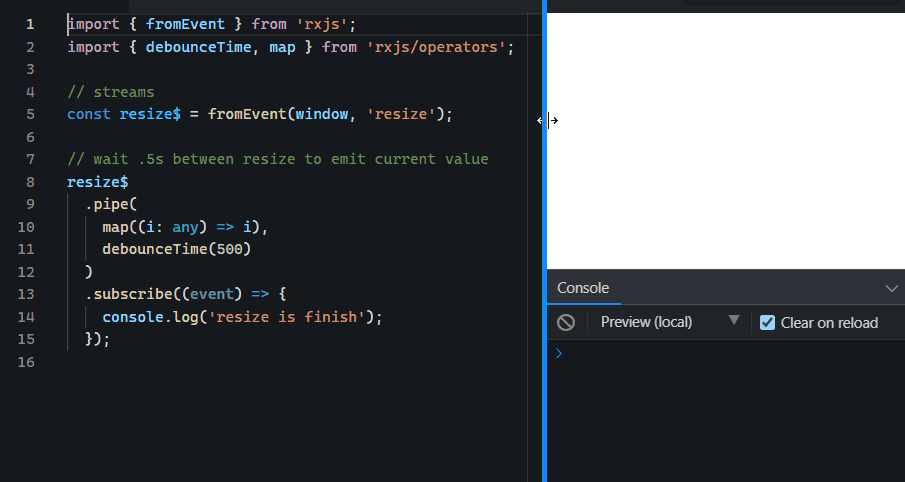I would like to perform some tasks based on the window re-size event (on load and dynamically).
Currently I have my DOM as follows:
<div id="Harbour">
<div id="Port" (window:resize)="onResize($event)" >
<router-outlet></router-outlet>
</div>
</div>
The event correctly fires
export class AppComponent {
onResize(event) {
console.log(event);
}
}
How do I retrieve the Width and Height from this event object?
Thanks.


innerHeightandinnerWidthproperties.. – Colesconsole.log(event.target.innerWidth )– Cottager